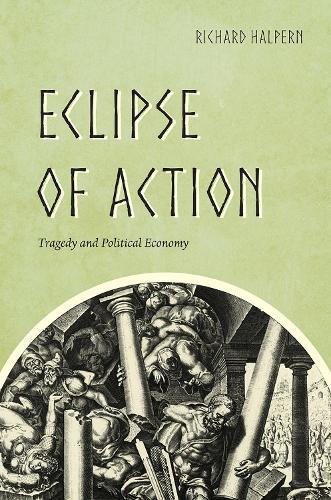Overview
According to traditional accounts, the history of tragedy is itself tragic: following a miraculous birth in fifth-century Athens and a brilliant resurgence in the early modern period, tragic drama then falls into a marked decline. While disputing the notion that tragedy has died, this wide-ranging study argues that it faces an unprecedented challenge in modern times from an unexpected quarter: political economy. Since Aristotle, tragedy has been seen as uniquely exhibiting the importance of action for human happiness. Beginning with Adam Smith, however, political economy has claimed that the source of happiness is primarily production. Eclipse of Action examines the tense relations between action and production, doing and making, in playwrights from Aeschylus, Marlowe, Shakespeare, and Milton to Beckett, Arthur Miller, and Sarah Kane. Richard Halpern places these figures in conversation with works by Aristotle, Smith, Hegel, Marx, Hannah Arendt, Georges Bataille, and others in order to trace the long history of the ways in which economic thought and tragic drama interact.
Full Product Details
Author: Richard Halpern
Publisher: The University of Chicago Press
Imprint: University of Chicago Press
Dimensions:
Width: 1.70cm
, Height: 0.20cm
, Length: 2.40cm
Weight: 0.624kg
ISBN: 9780226433653
ISBN 10: 022643365
Pages: 336
Publication Date: 13 March 2017
Audience:
Professional and scholarly
,
Professional & Vocational
Format: Hardback
Publisher's Status: Active
Availability: Out of stock

The supplier is temporarily out of stock of this item. It will be ordered for you on backorder and shipped when it becomes available.
Reviews
An ambitious reconsideration of tragedy that is at once deeply theoretical and richly historical, <i>Eclipse of Action</i> rethinks two canons: the canon of tragic drama and the canon of political economy.This is history on a scale to which literary scholars have become unaccustomed.Precisely because Halpern disregards protocols of discrete fields, this book will be widely read, cited, argued with, and celebrated.It belongs on the shelf next to the likes of Walter Benjamin, George Steiner, and Raymond Williams. --Martin Harries, author of Scare Quotes from Shakespeare: Marx, Keynes, and the Language of Reenchantment
<i>Eclipse of Action</i> brilliantly correlates the rise of political economy as a discipline and outlook with the attenuation and dispersal of action, virtue, and selfhood in tragic drama. Halpern s inventive yet careful readings of Aeschylus, Marlowe, Shakespeare, and Beckett disclose the literary and social unfolding of tragedy in response to the performative life and statistical capture of labor. Here we find a dynamic and revelatory theoretical space triangulated by Adam Smith, Karl Marx, and Hannah Arendt. --Julia Reinhard Lupton, author of Thinking with Shakespeare: Essays on Politics and Life
<i>Eclipse of Action</i> brilliantly correlates the rise of political economy with the attenuation of action, virtue, and selfhood in tragic drama. Halpern s inventive readings of Aeschylus, Marlowe, Shakespeare, and Beckett disclose the unfolding of tragedy in response to the performative life and statistical capture of labor. Here we find a revelatory theoretical space triangulated by Adam Smith, Karl Marx, and Hannah Arendt. --Julia Reinhard Lupton, author of Thinking with Shakespeare: Essays on Politics and Life
Author Information
Richard Halpern is the Erich Maria Remarque Professor of Literature at New York University. He is the author of several books, including Norman Rockwell: The Underside of Innocence, also published by the University of Chicago Press.



